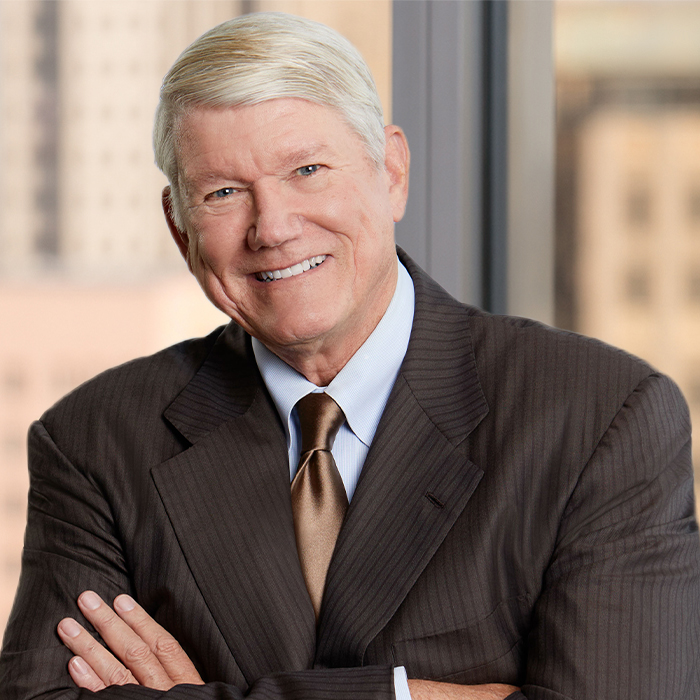The article appeared on POLITICO on December 11, 2016.
It’s no secret that Trump’s relationship with the media has been lukewarm at best. Given his treatment of the media during his campaign, many stakeholders in the news industry are concerned for the future of traditional relationships between the government and the press. Doing away with precedent, Trump failed to hold regular press meetings while campaigning and has yet to set up an official press pool since being elected.
As a result, many are left wondering whether Trump will use the powers of his office to afflict the media. His options for doing so are vast, but not without challenges, according to Jackson Walker partner Chip Babcock.
Trump could echo the tendencies of the Obama administration and call on the Department of Justice (DOJ) to issue more subpoenas based on the Espionage Act. The end-goal of this strategy would be to produce a chilling effect on the media, leaving journalists who rely on confidential government sources for reporting vulnerable to criminal charges.
According to Babcock, however, this strategy is in violation of the First Amendment.
“In [the] example of the Espionage Act, you would say, it’s not applicable because it’s vague,” Babcock said in a statement to POLITICO. “It doesn’t say that it covers journalists. You would say that it’s overbroad because it covers activities that are matters of public interest and captures too many people, including journalists, and is therefore unconstitutional for that reason.”
Another possible strategy – one Trump himself has popularized – involves attempting to expand libel laws to facilitate successful suits against media outlets. Babcock foresees difficulties with this idea, based on the fact that conservative judges are largely sticklers for preserving the First Amendment.
“The names of people that the Trump campaign released as potential nominees—I’ve looked at them, and they all have a good, strong First Amendment background,” Babcock said.
Alternatively, Trump could play on current libel laws and sue adverse news organizations with the hope that the legal costs would cause a significant financial disadvantage or even put them out of business.
“That is a real danger, because the cost of defending these things is just out of sight,” Babcock said. “Somebody who wants to bring a case knowing they’re not going to win but it’s not so frivolous it’ll get tossed out of court right away—you can fund like five reporters with the expense of successfully defending a libel case. That’s a very big concern.”
Considering these challenges, limiting access to the White House may be the best card Trump has to play. Not required by law to engage with the media, Trump may set a new precedent, blocking the press from long-standing traditions of covering the presidency.
For more information on this topic, read the full article in POLITICO.
About Chip Babcock
Chip Babcock is a partner in Jackson Walker’s Media practice. Nationally-recognized for successful media litigation, Chip has represented many high-profile clients, including Oprah Winfrey, Dr. Phil McGraw, Diane Sawyer, Warren Buffett, Bill O’Reilly, and George W. Bush. While specializing in media and First Amendment litigation, he also handles all types of commercial trial work. He is recognized by Chambers USA as a Top First Amendment attorney and nationally ranked for First Amendment Litigation, as a Trial Lawyer, and for General Commercial Litigation.
